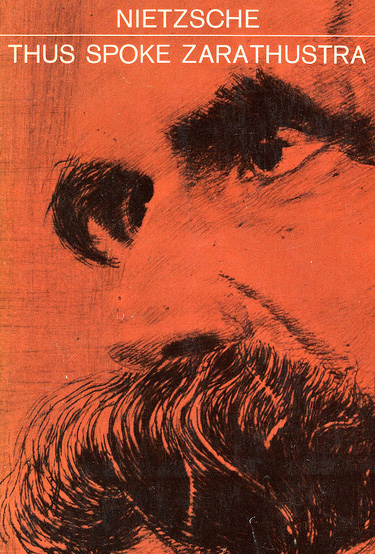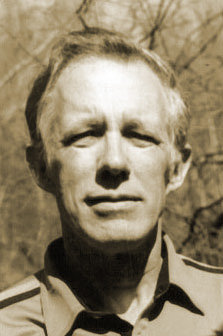
Revilo Oliver’s texts on Aryan ethnosuicide and the need to create a religion of hate have moved me to translate some explanatory notes of Thus Spoke Zarathustra at the bottom of this entry (see also my first post in the comments section).
1[1]
When Zarathustra was thirty years old[2] he left his home and the lake of his home and went into the mountains. Here he enjoyed his spirit and his solitude and for ten years he did not tire of it. But at last his heart transformed, – one morning he arose with the dawn, stepped before the sun and spoke thus to it:
“You great star! What would your happiness be if you had not those for whom you shine![3]
For ten years you have come up here to my cave: you would have tired of your light and of this route without me, my eagle and my snake.[4]
But we awaited you every morning, took your overflow from you and blessed you for it.
Behold! I am weary of my wisdom, like a bee that has gathered too much honey. I need hands that reach out.
I want to bestow and distribute until the wise among human beings have once again enjoyed their folly, and the poor once again their wealth.
For this I must descend into the depths, as you do evenings when you go behind the sea and bring light even to the underworld, you super-rich star!
Like you, I must go down[5] as the human beings say, to whom I want to descend.
So bless me now, you quiet eye that can look upon even an all too great happiness without envy!
Bless the cup that wants to flow over, such that water flows golden from it and everywhere carries the reflection of your bliss!
Behold! This cup wants to become empty again, and Zarathustra wants to become human again.”
– Thus began Zarathustra’s going under.[6]
______________________
The above German-English translation by Adrian del Caro is taken from Thus Spoke Zarathustra (Cambridge University Press, 2006). This Cambridge edition lacks the more detailed notes by Andrés Sánchez-Pascual in Así Habló Zaratustra (Madrid: Alianza Editorial, 2014). Thus, I have translated Sánchez-Pascual’s notes to English. Page numbers refer to that edition in Spanish.
Notes:
[1] This § 1 of Thus Spake Zarathustra literally reproduces the aphorism 342 of The Gay Science. Only the “Lake Urmi” that appears there is here replaced by “the lake of his home.” The aforementioned aphorism is entitled “Incipit tragædia” (Tragedy begins) and is the last of the fourth book of The Gay Science, entitled “Sanctus Januarius” (St. January).
[2] This is the age at which Jesus begins his preaching. See the gospel of Luke, 3, 23: “Jesus was about thirty years old when he began his work.” In the sought antagonism between Zarathustra and Jesus, this is the first of the confrontations. As can be seen throughout the work, Zarathustra is partly Jesus’ anti-figure. And so, the age when Jesus begins preaching is the same in which Zarathustra withdrew to the mountains in order to prepare for his task. Immediately after, a second contrast between the two becomes apparent: Jesus spent only forty days in the wilderness; Zarathustra spent ten years in the mountains.
[3] Zarathustra will pronounce the same invocation to the sun at the end of the work. See, in the fourth part, “The Sign.” [Note of the Ed.: Precisely the chapter mentioned by the end of my 2012 essay, “Dies irae”]
[4] The two heraldic animals of Zarathustra respectively represent his will and his wit. They will provide company on numerous occasions and even act as his conversational partners, especially in the very important chapter of the third part entitled, “The Convalescent.”
[5] “Untergehen.” It is one of the key words that illustrate the figure of Zarathustra. This German verb contains several nuances that hardly may be held simultaneously in the Spanish translation. Untergehen is primarily, and literally, “walk (gehen) down (unter).” Zarathustra, in effect, gets down from the mountains. Secondly the term usually designate the “sunset,” and Zarathustra makes it clear that he wants to act like the sun at sunset. Thirdly, Untergehen and the substantive Untergang are used to mean sinking, destruction, decay; thus the title of the famous work of Spengler’s, Der Untergang des Abendlandes (translated as The Decline of the West). Zarathustra also declines in his task and fails. His task, he says several times, destroys him. As a Castilian terminus technicus of Untergehen, here it has been adopted “hundirse en su ocaso” [Note of the Ed.: literally, “sinking into his sunset”—contrast it with the Cambdridge translation, “go down”] which seems to retain the three senses. However, Nietzsche plays countless times with this German compound word and also in contrast to other compounds. For example, he contrasts and joins Untergang and Übergang. Übergang is “passing to the other side” over something, but it also means “transition.” Man, Zarathustra would say, is “a transit and a sunset.” That is, by sinking into his decline, like the sun, he moves to the other side (of the earth, it is understood, according to the old belief). And “passing to the other side” means surpassing oneself and becoming the Overman.
[6] This same phrase is repeated later, on page 62. The “sunset” of Zarathustra ends towards the end of the third part, in the chapter entitled “The Convalescent” which states: “Thus – ends Zarathustra’s going under!”





